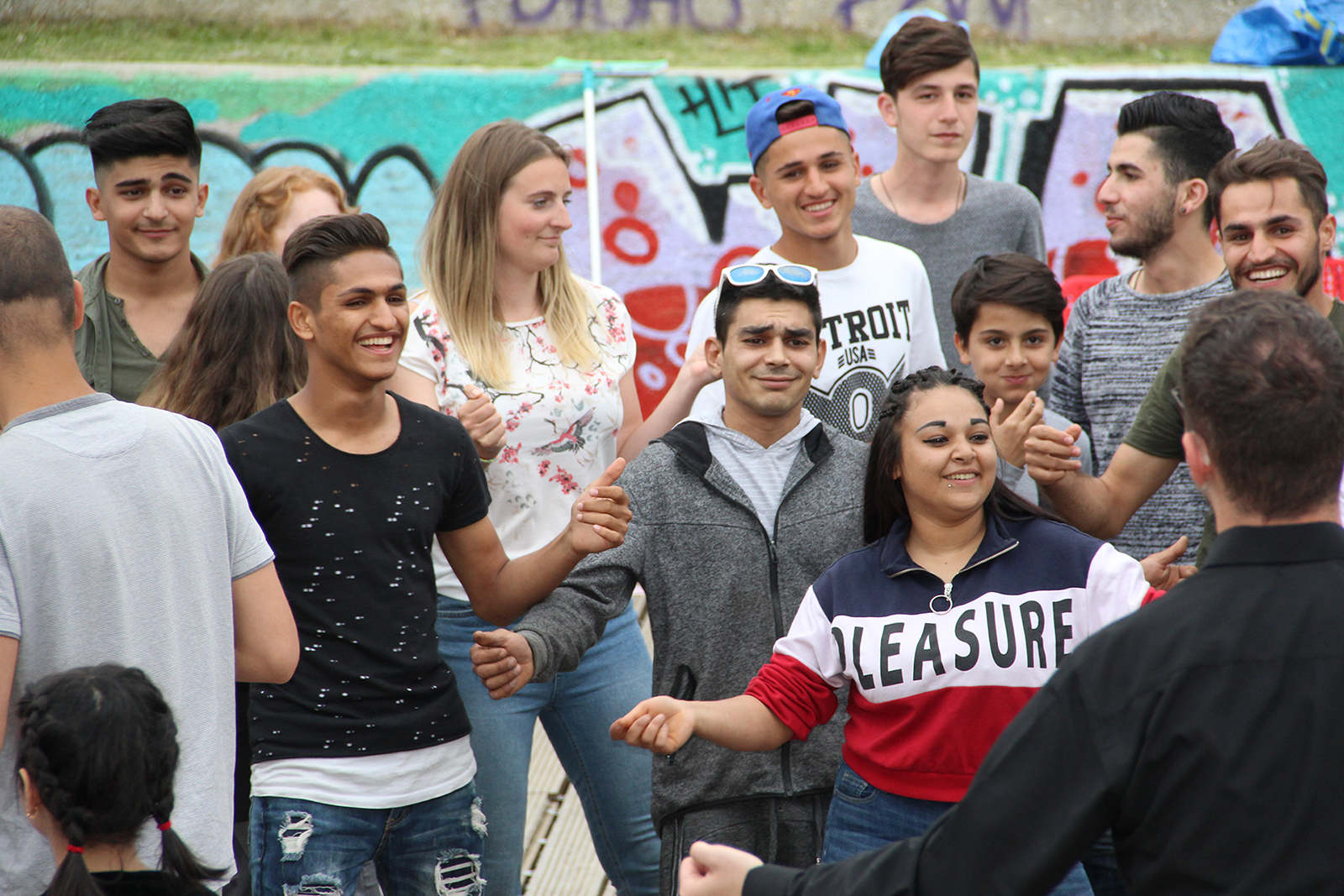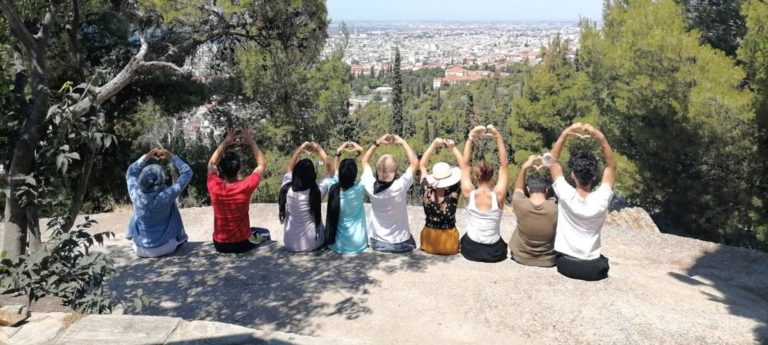
Championing Compassion
20 June 23
Do you remember the last time someone was kind to you or made you feel good about yourself? How about the last time someone made you feel bad?
Studies show that we are more likely to remember negative experiences over positive ones. It allows our bodies to think about the best way to protect us and respond. But it also means that our bodies can overwork if it feels continually threatened. In fact it’s estimated that for every negative interaction, we need 5-7 positive ones to balance it out. This is one of the reasons that “be kind” is such a simple but important message.
Kindness reduces stress and helps to improve our emotional wellbeing. Refugees we work with often share the stories of random acts of kindness they’ve experienced and the positive impact it’s had on them, especially in hostile media and political environments.
Here are some tips on how to practice kindness in your day-to-day life and with refugees in your community.

• Smile at strangers.
If you live in a big city like London, this step might seem unnatural but hear us out. Smiling is contagious. Smile at someone and they are likely to smile back (yes, even in London!). It will make you and them feel good whilst continuing to spread joy.
• Say hello.
Introduce yourself to new arrivals in your neighbourhood. It can be overwhelming to arrive in a new place with no connections. Have a chat with your new neighbours, ask how they’re doing or just comment on the weather. If you and they have children, you could also arrange a play-date. It might make their day.
• Practice non-judgement.
We all have conscious and unconscious biases. Look past stereotypes and get to know people as individuals, beyond their status as a refugee. What are their qualities, passions, interests and hobbies? What was their life like before they had to leave home? What are their dreams for the future?
• Be patient.
We all know the stress of trying to find the right change or card while a queue of people tut and roll their eyes behind you. Now imagine you’re doing this in a new country and/or language. Adjusting to a new place can take time but the patience of others can make it a little less stressful. Next time you see someone struggling, be patient and maybe even offer to help.
• Raise your voice.
Don’t let incorrect, discriminatory or bias comments pass you by. Speak up when you hear people make harmful and incorrect assertions about refugees and support policies that promote inclusive, fair treatment of refugees.
• Bond over food.
Embrace opportunities to learn about a new culture and cuisine. Have a ‘potluck’ dinner where everyone brings a dish from their childhood, exchange recipes and discover delicious food from around the world.
• Make the first move.
It can be difficult for anyone to ask for help, let alone a refugee who’s just arrived in a new community. Be proactive and ask if they need any support navigating bureaucracy, public transportation and other sevices. Many refugees also arrive with limited possessions. Remember those items you were thinking of selling? Consider donating them instead.
Finally, it’s also important to show kindness to yourself. We are often our toughest critic. Speaking to ourselves in a kind way can help with anxiety, stress and depression. It can also build the strength needed to continue being a positive force for others.

